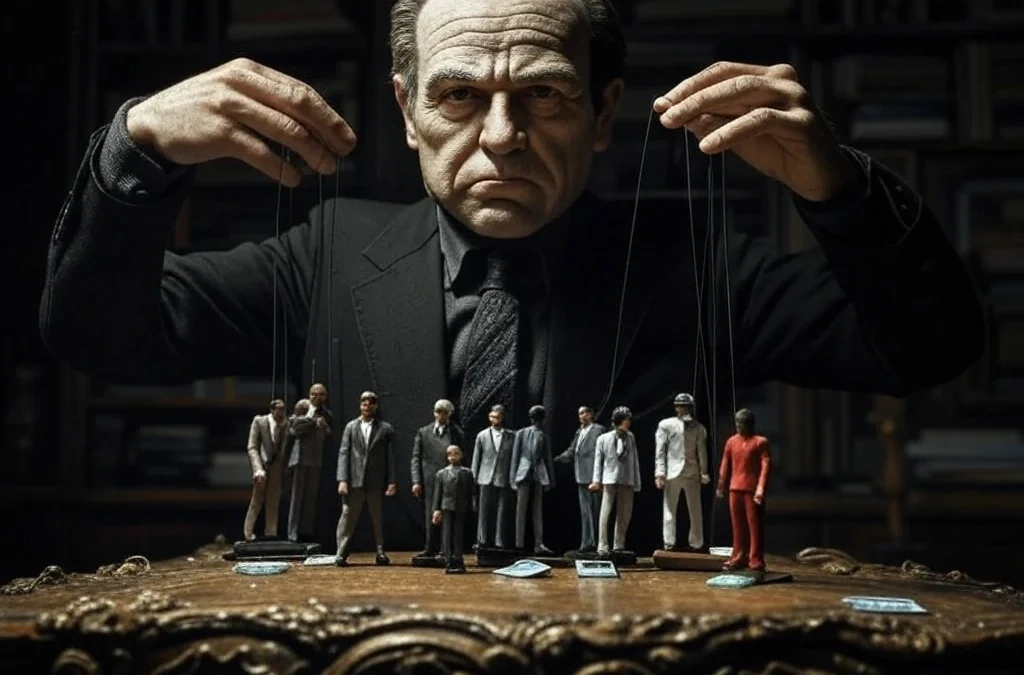In everyday life, we often hear about unethical behavior in various fields, from business to politics and beyond. Understanding what constitutes unethical behavior is crucial as it can have significant impacts on individuals and society as a whole. Unethical actions can range from small everyday decisions to major corporate scandals. It’s important to recognize these behaviors to avoid them and promote a more honest and fair world.
This article will explore 30 examples of unethical behavior, shedding light on actions that are often overlooked or excused. By examining these examples, we can better understand how such behaviors manifest and why they are harmful. Whether it’s cutting corners at work, spreading false information, or engaging in corrupt practices, each example serves as a reminder of the importance of ethics in our daily lives. Let’s delve into these examples to learn more about what to avoid in our personal and professional interactions.
What is Unethical Behavior?
Unethical behavior refers to actions or decisions that violate moral principles or established codes of conduct. It encompasses a wide range of behaviors that are dishonest, deceitful, or lacking in integrity, often prioritizing personal gain over fairness or the well-being of others. Unethical behavior can occur in various areas of life, including the workplace, personal relationships, and public sectors like business, politics, or law. Common examples include lying, cheating, stealing, fraud, bribery, and exploiting individuals or resources for selfish purposes.
In professional environments, unethical behavior can manifest as breaches of company policies, conflicts of interest, or the misuse of power and authority. In personal interactions, it may involve manipulation, betrayal, or taking advantage of others’ vulnerabilities. Such behavior undermines trust, damages reputations, and can have serious consequences, both legally and socially.
Ethical conduct is essential for maintaining a healthy, functional society. It builds trust, fosters collaboration, and ensures fairness. Identifying unethical actions is crucial for holding individuals accountable and promoting a culture of transparency and responsibility. Recognizing unethical behavior helps prevent harm and supports a community where integrity and respect are valued.
Key Examples of Unethical Behaviors
Here are some key examples of unethical behavior that occur across various fields. These actions can harm individuals, damage trust, and negatively impact society.
1. Suppressing Freedom of Speech
Preventing individuals from expressing their opinions, whether in workplaces or other settings, is an ethical violation. Suppression of speech stifles creativity and limits open dialogue, which is essential for progress.
2. Treating People Instrumentally
Treating people instrumentally means using them as mere tools or means to achieve a particular goal, without regard for their own intrinsic value, feelings, rights, or interests. This approach often disregards the person’s humanity or dignity, viewing them only in terms of their utility in fulfilling the user’s objectives.
3. Exploiting Vulnerable Populations
Taking advantage of vulnerable populations, such as the elderly or those in poverty, for financial or personal gain is unethical. These individuals are often less able to defend their rights and may suffer significantly from exploitation. Ethical behavior demands protecting, not exploiting, the vulnerable.
4. Bribery and Corruption
Bribery involves offering something of value to influence the actions of someone in a position of power. This undermines fairness and can lead to corrupt practices within organizations and governments. It distorts decision-making processes and can lead to significant legal penalties.
5. Data Manipulation in Research
Altering or fabricating data in research to achieve desired outcomes is unethical. This behavior can lead to false conclusions, which may negatively impact scientific progress. It also diminishes trust in research findings and the individuals involved in the misconduct.
6. Exploitation of Labor
Exploitation occurs when workers are treated unfairly or are paid less than they deserve. This often happens in environments where workers have limited rights or options. Exploiting labor can lead to poor working conditions and violates human rights principles.
7. Insider Trading
Insider trading involves buying or selling stocks based on confidential information not available to the public. This gives an unfair advantage and disrupts the fairness of financial markets. Those caught engaging in insider trading can face heavy fines and imprisonment.
8. Cyberbullying
Cyberbullying involves using digital platforms to harass or intimidate others. It can have severe psychological effects on victims. This behavior is prevalent among teenagers but can occur at any age, leading to emotional distress and, in extreme cases, tragic outcomes.
9. Identity Theft
Identity theft occurs when someone illegally uses another person’s personal information for financial gain. This can cause significant financial and emotional harm to victims. Recovering from identity theft can be a long and difficult process.
10. Tax Evasion
Individuals or companies engage in tax evasion by illegally avoiding paying taxes owed to the government. This deprives the government of revenue needed for public services. Those caught evading taxes can face fines, penalties, and even imprisonment.
11. Sexual Harassment in the Workplace
Sexual harassment involves unwelcome advances or inappropriate behavior of a sexual nature. It creates a hostile work environment and can severely affect victims’ careers and mental health. Organizations are increasingly implementing policies to prevent and address such behavior.
12. Favoritism and Nepotism
Favoritism occurs when someone in a position of authority unfairly favors certain individuals over others. Nepotism is a specific type of favoritism where family members are given preferential treatment. Both practices can lead to resentment and decreased morale among employees.
13. Patient Neglect in Healthcare
Neglect occurs when healthcare providers fail to give adequate attention or care to patients. This can result in serious health complications or worsening of conditions. Ethical healthcare requires providers to prioritize patient well-being and safety.
14. Lying on a Resume
Some individuals lie on their resumes to enhance their qualifications. This unethical practice can lead to mismatches between job requirements and an employee’s actual skills. It may also result in job loss if the deception is discovered.
15. Sabotage in the Workplace
Sabotage involves deliberate actions to damage or disrupt a workplace or its operations. This can harm a company’s productivity and employee morale. It may also have legal consequences for the person responsible.
16. Animal Cruelty
Animal cruelty involves causing harm or suffering to animals, whether intentional or through neglect. This unethical behavior is often condemned by society and can lead to legal repercussions. Ethical treatment of animals is essential for a compassionate society.
17. Cheating in Examinations
Cheating involves using unauthorized materials or methods to gain an advantage in exams. This undermines the fairness of the educational process. Schools often have strict policies against cheating, and students caught may face disciplinary actions.
18. Conflicts of Interest
A conflict of interest occurs when someone in a position of trust has competing interests that could influence their decisions. This can lead to biased outcomes and erode trust in professional settings. Transparency is crucial in managing and mitigating conflicts of interest.
19. Gossiping and Slander
Gossiping involves spreading rumors or private information about others. Slander is a more serious form of gossip that involves making false statements that damage someone’s reputation. Both behaviors can create a toxic environment and harm individuals’ personal and professional lives.
20. Price Gouging
Price gouging happens when sellers increase prices to an unreasonable level during emergencies. This exploits consumers who may have no choice but to pay the inflated prices. Regulatory bodies often step in to prevent such practices during crises.
21. Stealing Credit for Others’ Work
Taking credit for someone else’s work or ideas is a form of intellectual theft. This behavior can create resentment and stifle creativity in workplaces or collaborative environments. It undermines trust and discourages teamwork.
22. Withholding Vital Information
In some situations, deliberately withholding important information can harm others. For example, not sharing safety data on a product could lead to injuries. Being transparent and forthcoming with critical details is key to ethical behavior.
23. Discrimination in Hiring
Discriminating against job applicants based on race, gender, age, or other factors unrelated to their qualifications is unethical. It denies people equal opportunities and perpetuates inequality in the workplace. Ethical hiring practices promote fairness and inclusivity.
24. Medical Fraud
Falsifying medical records or submitting false insurance claims is a serious ethical violation. It can lead to financial losses for patients and insurers, as well as degrade trust in the healthcare system. Accurate reporting and honesty are crucial in medical care.
25. False Advertising
Companies engaging in false advertising deliberately mislead customers about the quality or features of a product. This unethical practice can harm consumers and damage a company’s reputation. Regulatory bodies often impose fines and require corrective actions from businesses that deceive the public.
26. Plagiarism in Academia
Plagiarism occurs when someone copies another person’s work and presents it as their own. In academic settings, this is particularly damaging because it undermines the integrity of educational achievements. Students or researchers who plagiarize may face severe consequences, such as expulsion or loss of credibility.
27. Neglecting Child Welfare
Parents, guardians, or caregivers who neglect the needs of children, whether emotionally, physically, or financially, engage in unethical behavior. Children depend on adults for their well-being, and neglect can have lasting harmful effects.
28. Unethical Treatment of Competitors
Using unethical tactics to harm competitors, such as spreading false rumors or sabotaging their business, undermines fair competition. Success should be achieved through merit, not by unethical actions that damage others.
29. Engaging in Coercion
Coercion involves forcing someone to act against their will through threats or manipulation. This strips people of their autonomy and freedom to make choices. Ethical behavior requires respecting others’ consent and decisions.
30. Misleading Clients
Advising clients based on personal gain rather than their best interests is unethical in professions such as finance or law. Professionals have a duty to act with integrity and provide honest guidance.
Why Do We Need Ethical Behavior?
Ethical behavior is the foundation that holds societies together. It’s what allows us to trust each other, work together, and build a future. Without ethics, the fabric of our relationships – both personal and professional – would unravel. We need ethical behavior to foster fairness, compassion, and respect in our interactions. It’s what enables justice to flourish and equality to be protected.
At an individual level, ethics shapes who we are. It guides our decisions, pushes us to do the right thing, even when no one is watching. Living ethically gives us a sense of purpose and integrity. It’s about more than following rules; it’s about nurturing values that define what it means to be a good person. By acting ethically, we not only improve our own lives, but we inspire others to act with kindness and honor.
For society, ethics is like the glue that binds us. When businesses, governments, and communities operate with ethical principles, trust grows. Economic systems thrive, justice systems work fairly, and opportunities expand for everyone. In contrast, unethical behavior erodes this trust, causing chaos, inequality, and suffering. Corruption, exploitation, and dishonesty become rampant, creating a world where only the selfish survive.
Now, imagine a world without ethics. A world where lying, cheating, and stealing are the norm. In this world, no one would feel safe. Institutions would collapse. Without ethical behavior, laws lose their meaning. Relationships crumble, and societies fracture. The pursuit of personal gain, without regard for others, would lead to a harsh, competitive existence, where empathy and cooperation are lost.
As we can see, ehical behavior is not just a choice – it’s a necessity. It shapes the future we want to create for ourselves and for humanity. It lays the groundwork for a life filled with trust, mutual respect, and shared progress. We need ethics because they guide us toward a world where everyone can thrive, not just survive.
Understanding the Causes of Unethical Behavior
Unethical behavior is often rooted in a variety of causes that can influence individuals or organizations to act inappropriately. One significant cause is the pressure to meet unrealistic goals. In many work environments, employees may face intense pressure to achieve targets that are difficult or impossible to meet ethically. This pressure can lead to cutting corners or engaging in dishonest practices simply to meet those expectations.
Another common cause is the lack of clear ethical standards or codes of conduct. When organizations do not establish or communicate clear guidelines, employees might not understand what is considered acceptable behavior, which can lead to unethical decisions. Additionally, the culture within an organization plays a critical role. If there is a culture that implicitly condones unethical behavior, or if unethical actions are not punished, individuals may feel justified in acting unethically. Understanding these causes is crucial for developing strategies to prevent unethical behavior in workplaces and other settings.
The Impact of Unethical Behavior on Organizations
Unethical behavior can have severe consequences for organizations, affecting both their internal dynamics and external reputation. Internally, unethical behavior can lead to a toxic work environment where trust among employees is eroded. When unethical practices are prevalent, employee morale can suffer, leading to decreased productivity and higher turnover rates.
Externally, the impact can be even more damaging. If unethical behavior becomes public, it can lead to reputational damage that is difficult to repair. Customers and clients may lose trust in the organization, leading to a loss of business and revenue. Furthermore, legal repercussions can arise from unethical actions, resulting in fines or other penalties that can be financially devastating. It is essential for organizations to recognize these potential impacts and take proactive steps to foster an ethical culture to mitigate these risks.
Unethical Behavior in Digital Environments
The rise of digital technology has transformed how we live and work. However, with this transformation comes new avenues for unethical behavior. Online platforms can be breeding grounds for actions that would be deemed improper in the physical world. Cyberbullying is one such issue, where individuals use digital channels to harass or belittle others. This behavior can have severe emotional consequences for the victims.
Another example is the spread of disinformation. Fake news and misleading information can be easily disseminated, affecting public opinion and decision-making. This is especially troubling during elections when misinformation can influence voter behavior. The anonymity of the internet allows individuals to engage in these activities with little fear of retribution.
Moreover, data privacy concerns have become prominent. Companies may engage in unethical practices by collecting user data without consent or selling personal information to third parties. This invasion of privacy can lead to a loss of consumer trust.
Digital platforms must take steps to combat these issues. Implementing strict guidelines and monitoring systems can help reduce unethical behavior online. Users should also be educated about the importance of ethical conduct in digital spaces.
Cultural Perspectives on Unethical Behavior
Unethical behavior is not viewed the same way across cultures. What is considered unethical in one culture may be acceptable in another. For instance, gift-giving in business can be seen as a sign of respect in some cultures, while in others, it may be viewed as bribery. Understanding these cultural differences is crucial for multinational companies.
In some societies, collectivism is emphasized over individualism. Actions that benefit the group might be prioritized, even if they seem unfair to outsiders. This can lead to practices that might be seen as unethical, such as nepotism or favoritism.
Cultural norms also influence perceptions of honesty and integrity. While some cultures value directness, others might see it as rude and prefer more indirect communication. This can affect how ethical behavior is judged.
Businesses operating internationally must navigate these cultural nuances carefully. Training employees to understand and respect cultural differences can prevent misunderstandings and unethical practices. This approach ensures that companies maintain their reputation across diverse regions.
Read also: 20 Personal Integrity Examples & Definition
The Most Popular on BitGlint

40 Social Dilemma Examples in the World & Real Life
Social dilemmas are everywhere. They shape the choices we make at work, in our communities, and even on a global...

30 Favor Examples & Definition
Doing a favor means helping someone without expecting anything in return. It’s an act of kindness that can strengthen...

30 Naivety Examples & Definition
Naivety is something most people experience at some point in their lives. It often starts in childhood, but for some,...

20 Chronology Examples & Meaning
Chronology is something we use more than we realize. It shows up in conversations, in how we remember the past, and in...

30 Wishful Thinking Examples & Meaning
Wishful thinking is something we all do at some point. You hope things will turn out fine—even if there’s no real...

20 Examples of Gravity & What Gravity Really Is
Gravity is one of the most important forces in the universe, but many people don’t fully understand what it really is...

20 Examples of Secondary Consumers in the Food Chain
Secondary consumers are animals that eat other animals—usually herbivores that feed on plants. They’re an important...
Get Inspired with BitGlint
The Latest
30 Flow State Examples & Definition
Most people have felt it at some point — that rare moment when everything just clicks. You're working, moving, or thinking, and suddenly it's like the rest of the world fades out. You're focused, clear, and everything you're doing feels smooth and natural. That’s...

30 Cynicism Examples in Everyday Life & Definition
Cynicism is something most people have seen, heard, or even felt - but few stop to really think about what it means. It shows up in jokes, in conversations, and in quiet thoughts we don’t always say out loud. Some people wear it like armor. Others see it as honesty....
50 Examples of Square Things
Square things are part of everyday life, even if we don’t always think about them. From objects we use at home to tools, packaging, and design elements we see out in the world, the square shape is everywhere. It’s simple, balanced, and practical — which is exactly why...
Top 20 Dishonesty Examples & Definition
Dishonesty shows up everywhere. It can be small, like telling a white lie, or much bigger, like fraud. No matter the size, dishonesty has a ripple effect that can damage trust. In this article, we’ll explore 20 common examples of dishonesty to help you spot them in...

